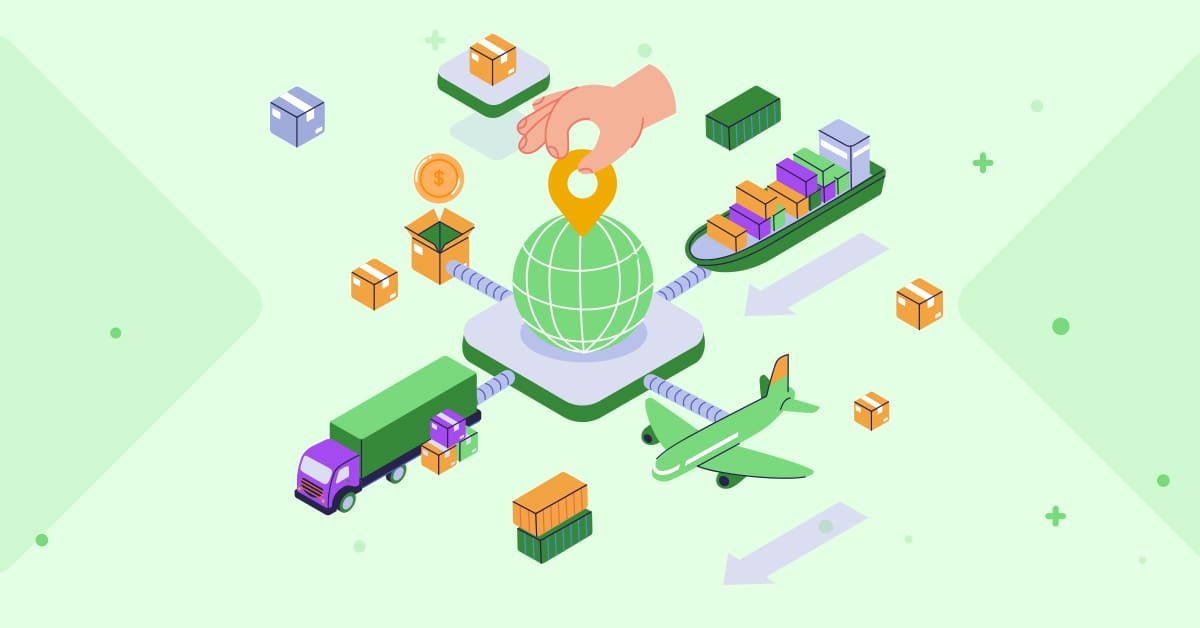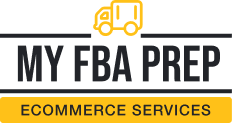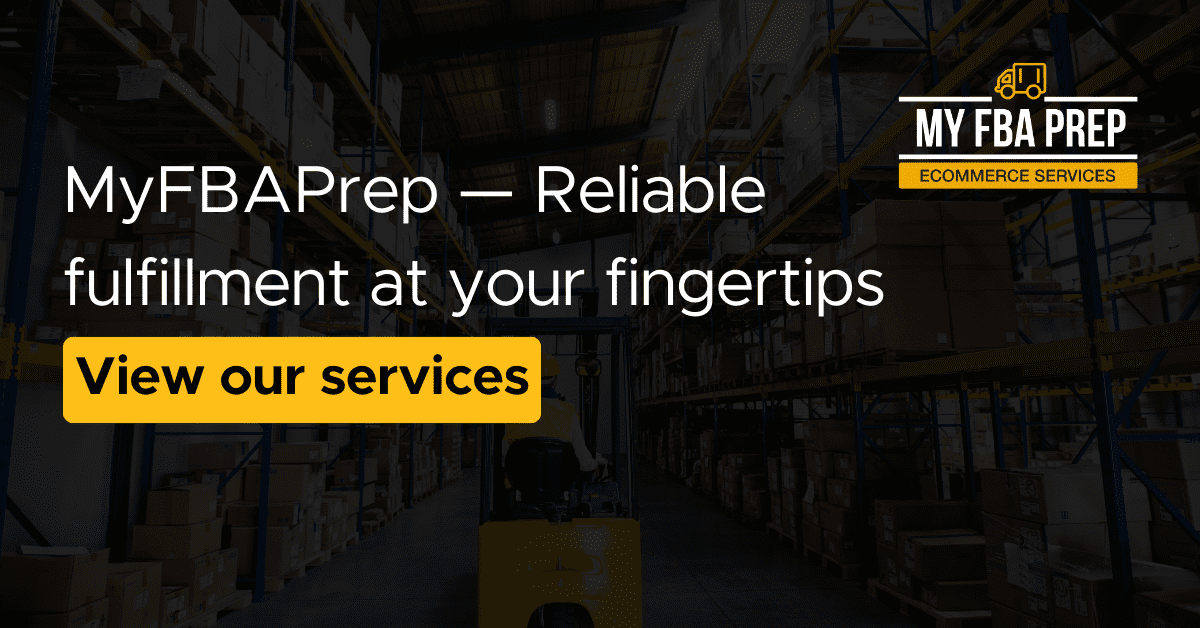
eCommerce 3PL Data and Seller Insights: 2023 Survey Results

As customer expectations evolve, eCommerce retailers must adapt by implementing advanced solutions that cater to their clientele’s growing demands. One aspect that plays a vital role in achieving this is logistics management, with third-party logistics (3PL) providers emerging as indispensable partners for online merchants.
To better understand eCommerce sellers’ current priorities, challenges, and objectives, we conducted an extensive seller survey, gathering insights from business owners across various channels and industries.
Our survey provides a comprehensive overview of the online retail landscape in 2023, highlighting the ever-increasing importance of logistics and 3PLs for eCommerce merchants as they navigate the digital road to success. Read on and dig into some of the most interesting eCommerce 3PL data we uncovered.
The role of logistics and 3PLs for eCommerce merchants
Logistics and 3PL providers are integral for robust eCommerce operations, as they encompass everything from inventory management and order fulfillment to shipping and returns.
Logistics management directly impacts customer satisfaction and the overall shopping experience. By streamlining that process, businesses can ensure timely delivery, maintain adequate inventory levels, and offer exceptional customer service.
This is where 3PLs come into play. Outsourcing logistics to a 3PL allows eCommerce retailers to leverage the expertise and resources of seasoned professionals, enabling them to focus on their core competencies.
With a 3PL, eCommerce merchants can connect to a wide network of distribution centers, carriers, and other resources. This results in lower shipping costs and faster delivery times. 3PLs also offer the flexibility to scale operations up or down, depending on the business’s needs, ensuring optimal efficiency. Additionally, 3PLs often employ cutting-edge technology to help businesses optimize their supply chains and streamline the fulfillment process.
However, the journey to successful logistics management has its challenges.
eCommerce merchants often face obstacles such as finding the right 3PL partner, overcoming integration difficulties, and ensuring seamless communication between all parties involved.
Navigating these challenges is critical to effective logistics management. It lays the foundation for a fruitful partnership with a 3PL provider, ultimately driving growth and success for eCommerce businesses in the long run.
Interested in other results from our 2023 Seller Survey? Check out MyFBAPrep’s Seller Survey Insights 2023.
Most common 3PL partners among eCommerce merchants
Selecting the right 3PL partner is a crucial decision that significantly impacts a business’s growth and success. According to our recent survey, the most common 3PL partners that eCommerce merchants contract with are:
- FedEx (58.9%)
- UPS (43.9%)
- Amazon FBA (43%)
- Amazon MCF (35.5%)
- USPS (29%)
These industry giants have established themselves as reliable and efficient logistics providers, making them popular choices among eCommerce retailers.
But how do merchants find their ideal 3PL partner?
How eCommerce merchants choose a 3PL partner
Our survey revealed the most common ways to find a 3PL partner are referrals, social media, online ads, and industry events:
- Social media (39.2%): Social media platforms are a valuable resource for discovering and researching 3PL providers. Many 3PL companies maintain a presence on popular social media channels such as LinkedIn, Facebook, Twitter, and Instagram to showcase their services, share industry news, and engage with prospective clients.
- Referrals (15.9%): Many merchants rely on word-of-mouth recommendations from their peers or industry contacts. This approach leverages firsthand experiences and insights, which can help businesses identify a partner with a proven track record of success.
- Ads outside of social media (12.2%): You can often find ads for 3PL providers on various digital platforms, search engines, and industry-specific websites. These spotlight potential 3PL partners and educate sellers about their services and offerings.
- Industry events (11.2%): Attending conferences, trade shows, and other industry-specific events can be an effective way to meet 3PL providers and learn about their offerings. These events often feature presentations and panel discussions that reveal valuable insights into the latest trends and best practices in logistics management.
Take advantage of these portals to find and select a 3PL partner that aligns with your unique needs and objectives.
What merchants consider when choosing 3PLs
When selecting a 3PL partner, eCommerce merchants consider several factors to ensure their chosen provider meets their unique needs and objectives.
According to our survey, the most crucial aspects that influence their decision-making process are:
- Price (56.6%): Cost is a top concern for eCommerce retailers. They look for competitive pricing structures and strive to balance affordability with quality service. Pricing encompasses warehousing, order fulfillment, shipping costs, and any additional fees.
- Delivery speed (46%): Fast and efficient delivery is mandatory to meet customer expectations and enhance the overall shopping experience. Merchants prioritize 3PL providers that offer quick turnaround times and efficient same-day, next-day, or two-day shipping options.
- Reliability (45.4%): Online sellers need a 3PL partner who consistently delivers on their promises. Reliability includes meeting delivery timelines, maintaining accurate inventory levels, and minimizing errors in the order fulfillment process.
- Ease of use (40%): A user-friendly and intuitive interface is essential for seamless integration and efficient management of logistics operations. Merchants prefer 3PL providers with simple and straightforward systems that remove the complexity of managing inventory, tracking orders, and handling returns.
- Customer service (33.2%): Responsive and proactive customer support is foundational to a successful 3PL partnership. Sellers value providers that offer dedicated account managers, timely issue resolution, and regular communication to ensure smooth logistics operations.
- Services (30.4%): A 3PL provider’s range of services can be a decisive factor for eCommerce merchants. Businesses look for partners catering to their specific needs, such as kitting and assembly, customized packaging, or international shipping.
Consider these factors carefully to identify a 3PL partner who aligns with your requirements and streamlines logistics operations.
Your business may benefit from a 3PL partnership. Read our blog on why you should outsource your eCommerce logistics.
Most common concerns when partnering with 3PLs
Despite their advantages, 3PLs have a few concerns that cause eCommerce sellers to hesitate. Identifying and addressing these concerns is crucial for fostering a successful and lasting relationship.
According to our survey, the most common concerns include:
- Shipping mistakes (42%)
- Expensive shipping costs (37.2%)
- Poor communication (28.2%)
- Inventory loss, theft, or breakage (27.2%)
- Lack of services (23.2%)
- Inaccurate receiving (20%)
To address these issues and ease merchants’ worries, 3PL providers are taking proactive steps like:
- Investing in internal processes: Implementing robust quality control measures, investing in advanced technology, and providing continuous training for staff can help reduce shipping errors. Scheduled audits and performance evaluations also ensure 3PL providers maintain robust operations.
- Cutting shipping costs: This includes transparent and flexible pricing structures, negotiating better rates with carriers, and providing access to a wide network of shipping options. Regularly reviewing and optimizing shipping strategies can yield cost savings for merchants.
- Strengthening communication: 3PLs now focus on establishing clear lines of communication, offering dedicated account managers, and adopting efficient communication tools to improve the flow of information between them and their clients. Regular updates on order status, inventory levels, and other logistics-related matters also build trust and enhance the partnership.
- Protecting inventory: To reduce theft, loss, and damage, providers are implementing stringent security measures, investing in warehouse management systems, and conducting regular inventory audits.
- Expanding services: As eCommerce needs increase in complexity, fulfillment providers see the need to expand and diversify their service offerings, stay abreast of industry trends, and customize solutions to cater to the unique requirements of eCommerce merchants. This enables 3PLs to become versatile partners capable of adapting to the evolving demands of their clients.
- Refining receiving processes: This involves streamlining the receiving process, utilizing barcode scanning technology, and ensuring accurate documentation. 3PLs also run regular audits and staff training to improve the accuracy of their inventory-receiving processes.
By addressing these concerns and demonstrating a commitment to excellence, 3PL providers can instill confidence in eCommerce merchants and establish themselves as trusted partners in the online retail ecosystem.
Wrapping up — Learn from our eCommerce 3PL data
A robust logistics strategy with the support of a reliable 3PL partner can significantly impact your business’s overall success and growth.
As customer expectations evolve, effective logistics management becomes even more critical in ensuring a seamless shopping experience and, ultimately, higher customer satisfaction and loyalty.
Diligently assess your business’s unique needs and objectives and conduct thorough research on potential 3PL partners to secure a logistics solution that streamlines your operations and propels your eCommerce venture to new heights.


